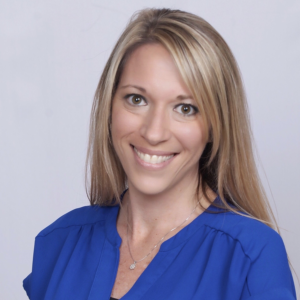“You can’t pour from an empty cup,” Jennifer McLeland, MSW, MA, CCRC, ACRP-PM, RPSGT, ASTEP program director and manager in the Division of Clinical Research at Washington University School of Medicine, told attendees of an ACRP webinar in February. “You have to take care of yourself, [because] if you are drained” you can’t be your best for your loved ones, colleagues, and others in your life, she said.
While the term “work/like balance” has been bandied about for years, the impact of the COVID-19 pandemic has put additional pressure on clinical trial practitioners both personally and professionally, even as it has shone a light on the stresses of an overworked group due, in part, to a workforce shortage and the increasing complexity of clinical trial designs and expectations.
“You have to take care of yourself,” McLeland said. She’s a big advocate of self-care in a number of forms, taking and enjoying earned days off, and learning when it’s okay to “do a good job instead of a perfect job.”
She’s not talking about sacrificing key components of clinical trial quality, however. “Some things do need to perfect, such as data analysis,” she noted, but added that there are many other areas in our personal and professional lives where holding ourselves to too high standards is ultimately detrimental on a number of levels.
“Multitasking has been glorified, but it’s more efficient to monotask,” McLeland said. Studies have shown it takes 20 minutes to get back on track after being diverted in another direction, she noted. Focus on the task at hand and don’t act as if juggling nine tasks at the same time is a good or effective strategy, she advised.
Another tip: Stop obsessively checking e-mail, especially in the evening and during other down time. “You are just going to have to read those again” during regular working hours to deal with them, she noted.
The New Work/Life Balance in Clinical Research
Learn more tips from McLeland in this recorded webinar — free for ACRP Members. Learn time management strategies applicable in both the home and at the office and walk away with a better grasp of the ideal work/life balance and tools to help you make your goals a reality.
Ironically, the pursuit of work/life balance brings its own problems McLeland said. For starters, “it doesn’t exist,” as such. “There is no perfect balance and no magical universal formula to create it,” she added.
However, far from being discouraging, acceptance and understanding of the fact is freeing and will ultimately help you attain a better mix in your life, she said. “The good news is you can develop it for yourself [and craft something] unique to you,” she explained.
One key is staying with tasks that align to your priorities, she said. Another important lesson: Know when and how to say “no,” she stressed.
Further, while its tempting, especially for Type A personalities, to want to be a hero and take on every assignment tossed their way, it’s wiser to be realistic and pace yourself, McLeland said. Allowing it isn’t always easy to decline a project, she offered a few phrases to help defray tasks you truly don’t have bandwidth to responsibly take on:
- My schedule is already full.
- Thanks, but I’m not taking anything else on right now.
- I appreciate you asking me, but I can’t commit to that right now.
- Thanks for thinking of me, but I can’t.
“Instead of being a Type A personality, aim for B+, [because] sometimes good is enough,” McLeland said.
Author: Michael Causey



